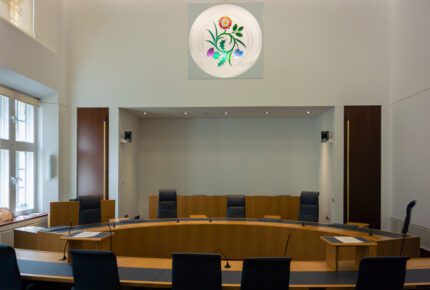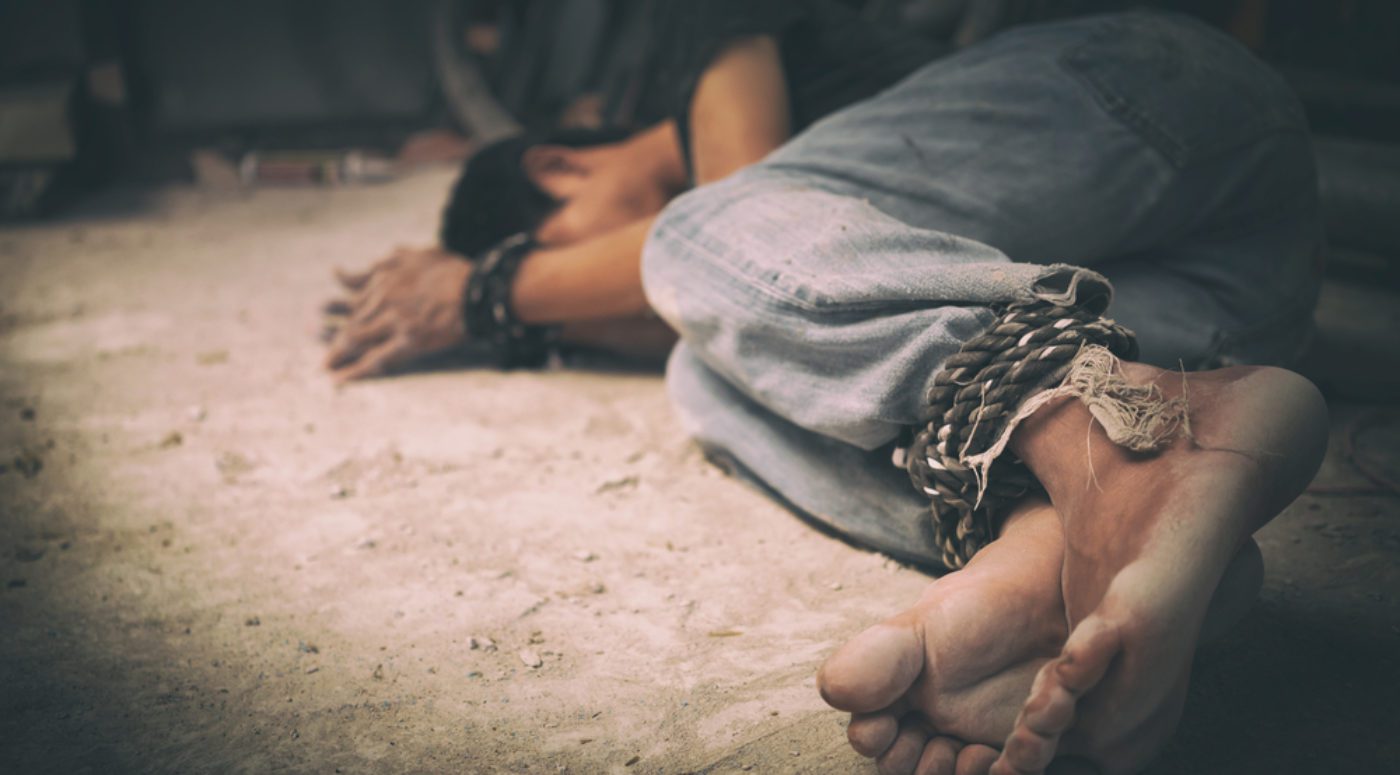

In the year ending December 2022, there were approximately 1,630 police-recorded modern slavery and human trafficking offences reported across England and Wales, in part explaining why the judicial system’s response has been intensifying. If you find yourself charged with such an offence, getting expert help from an experienced criminal defence solicitor early on can significantly improve your chances of achieving the best possible outcome. In this article, we’ll consider common but important questions that individuals facing allegations or charges often ask, such as whether you need a solicitor for human trafficking charges, what defences may be available to you, and if you’ll be able to get bail. We’ll also cover other frequently asked questions about the process, potential sentences and possible impact on your life if convicted, ensuring you’re fully aware of your rights and options.
Do I need a solicitor for human trafficking?
Human trafficking cases – governed by the Modern Slavery Act 2015 – are very serious and the inherent complexity of them means that securing representation from an experienced advocate is essential for ensuring your right to a fair trial. A solicitor can help you by:
- Explaining clearly and comprehensively what the charges against you mean, including the specifics of the allegations and their potential outcomes.
- Guiding you through complicated legal processes, ensuring you understand each stage of the proceedings.
- Protecting your legal rights from the outset and representing your interests at police interviews or in court.
- Analysing the evidence presented by the prosecution, assessing its accuracy and legality, and challenging it effectively where necessary.
- Developing a tailored defence strategy aimed at achieving the most favourable outcome possible given your circumstances.
What are possible defences for human trafficking?
There are several potential defences available to someone charged with this offence, depending on the specific circumstances of the case.
One possible defence is demonstrating a lack of knowledge. It could be argued that you genuinely did not know that the activity you were participating in involved human trafficking, or that you were completely unaware of the victim’s vulnerable circumstances or coercion.
Another defence may involve duress. Duress means that you were forced or threatened by someone else to commit the offence against your will. To successfully employ this defence, you must typically establish that:
- You reasonably feared immediate harm to yourself or someone close to you if you did not engage in the offence.
- A reasonable person in similar circumstances would have acted as you did.
It is sometimes possible to argue mistaken identity. This applies when the prosecution is incorrect in claiming you were the individual involved in the trafficking offence. Providing credible alibis or presenting evidence to demonstrate that you have been wrongly identified can assist in establishing this defence.
If you have been accused of human trafficking, get legal advice at the earliest opportunity to understand the best strategy for your defence.
Will I get bail for human trafficking?
Bail decisions in human trafficking cases can be complex due to the seriousness of the charges involved. When deciding whether or not to grant bail, the court will take several factors into account, including:
- The seriousness and nature of the allegations against you.
- Any previous criminal record, particularly convictions for similar offences or offences that involve violence or exploitation.
- The likelihood of absconding or fleeing from jurisdiction to avoid trial.
- Whether there is a risk that witnesses or victims could be intimidated or harmed.
- Your ties and roots within the community, including employment, permanent address, and family connections.
- Your willingness and ability to comply with certain conditions imposed by the court, such as surrendering your passport, reporting regularly to a police station, or agreeing to live at a specific address.
If bail is granted, the court may impose strict conditions to mitigate risks identified. These conditions can include residing at an approved address, wearing an electronic tag, obeying a curfew, regularly reporting to your local police station, or restrictions on contacting certain individuals.
Will I have to go to court if I’m arrested or charged for human trafficking?
Yes, it is very likely that you will be required to attend court proceedings.
Initially, you will usually appear at a Magistrates’ Court, which deals primarily with preliminary matters and sends cases of this magnitude to the Crown Court. Even though the Magistrates’ Court will consider bail and other initial decisions, the main trial and sentencing will take place in the Crown Court.
All court hearings will normally be mandatory. Failure to attend court may result in serious consequences, including a warrant for your arrest and additional criminal charges.
Attending court can be daunting, and the complex nature of human trafficking accusations makes seeking strong, professional legal representation especially important.
Will I go to jail if found guilty of human trafficking?
If you have been found guilty of human trafficking offences, there is a strong possibility that you will face a prison sentence. Human trafficking offences carry significant custodial sentences (as demonstrated by the Sentencing Council guidelines on the matter), which will usually depend on the specific facts and circumstances of each case. Factors that can influence the length of any sentence include:
- The severity and scale of the trafficking operation, including the number of victims involved.
- Whether violence, coercion, threats or deception were used.
- The nature and duration of the exploitation the victims suffered.
- The vulnerability and age of the victims – particularly if there were children or other vulnerable individuals involved.
- Whether the offence was aggravated by the involvement of organised criminal groups.
Currently, under the Modern Slavery Act 2015, a conviction for human trafficking can result in a maximum penalty of life imprisonment for the most serious cases. Even in less severe cases, courts commonly impose substantial jail sentences to reflect the seriousness of exploiting other people.
Will I go to jail if it’s my first offence of human trafficking?
Even if it is your first offence, being charged with human trafficking is an extremely serious matter. If convicted, the sentence you face will depend on a variety of factors, including:
- The exact nature and scale of the trafficking offence.
- Whether exploitation, coercion or threat of violence was involved.
- How many individuals were trafficked and whether vulnerable persons or children were involved.
- Your specific role and level of involvement in the offence.
- The presence or absence of any mitigating circumstances, such as cooperation with authorities or evidence of remorse.
Each case is assessed individually, which means the court will consider factors specific to your circumstances, allowing your solicitor to present any relevant mitigation to potentially reduce the harshness of your sentence.
Given the seriousness and the complexities involved in human trafficking charges, obtain professional legal advice as soon as possible. An experienced criminal defence solicitor will provide effective representation and carefully evaluate your case to ensure that your position is fully and clearly presented.
Can I get Legal Aid for human trafficking?
If you have been accused of human trafficking offences, you may be eligible for Legal Aid to cover the costs of your defence.
Legal Aid ensures that everyone has access to legal advice and representation, especially when facing criminal charges that carry severe consequences. Your entitlement will generally depend on two main factors:
- A means test: your financial circumstances, including your income, savings, and assets.
- An interests of justice test: this assesses the seriousness of the charges against you, the complexity of your case, and the potential penalties if convicted.
Due to the severity and complexity of human trafficking charges, these types of allegations typically satisfy the interests of justice criteria. However, you will need to demonstrate through the means test that your financial circumstances mean you require assistance with legal costs.
If you are uncertain whether you qualify, you should speak directly to a criminal defence solicitor at your earliest opportunity. They can advise you on whether you qualify for Legal Aid and, if appropriate, guide you through the application process to secure representation without unnecessary delay.
Where to get more help
Facing criminal charges can feel very overwhelming, but having reliable and experienced legal representation can make a significant difference to the outcome of your case. Seeking professional legal advice early ensures you understand your rights, navigate the complexities of the criminal justice system, and have the best possible support at your side. Stuart Miller Solicitors are dedicated to providing comprehensive guidance and a strong defence tailored to your individual circumstances. For expert advice and an initial consultation, get in touch with our criminal defence team today.
OUR COMMITMENTS TO YOU:
-
Responsive
A legal expert will consult you within 24 hours of making an enquiry.
-
Empathetic
We will always treat you with trust, understanding and respect.
-
Specialised
Your case will be handled by an expert who specialises in your type of offence.
-
Proactive
We will take early action to end proceedings as soon as it is practically and legally possible to do so.
-
Engaged
You will be kept updated on your case at all times. We will provide a named contact available to answer your questions.
-
Caring
We understand this is a difficult and stressful time for you and your family. Our team will support you every step of the way.
-
Tenacious
We will never give up on your case. We fight tirelessly to get you the best possible outcome.

